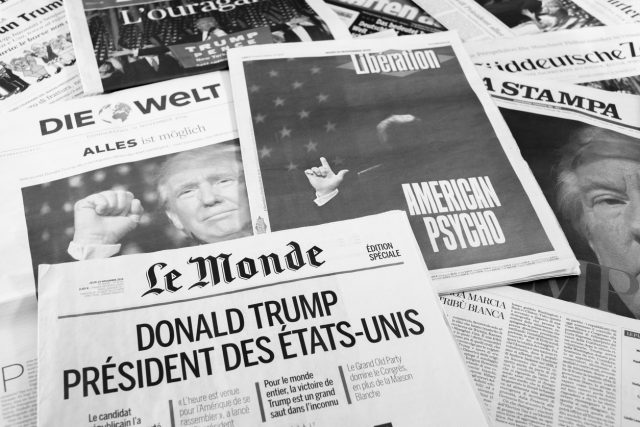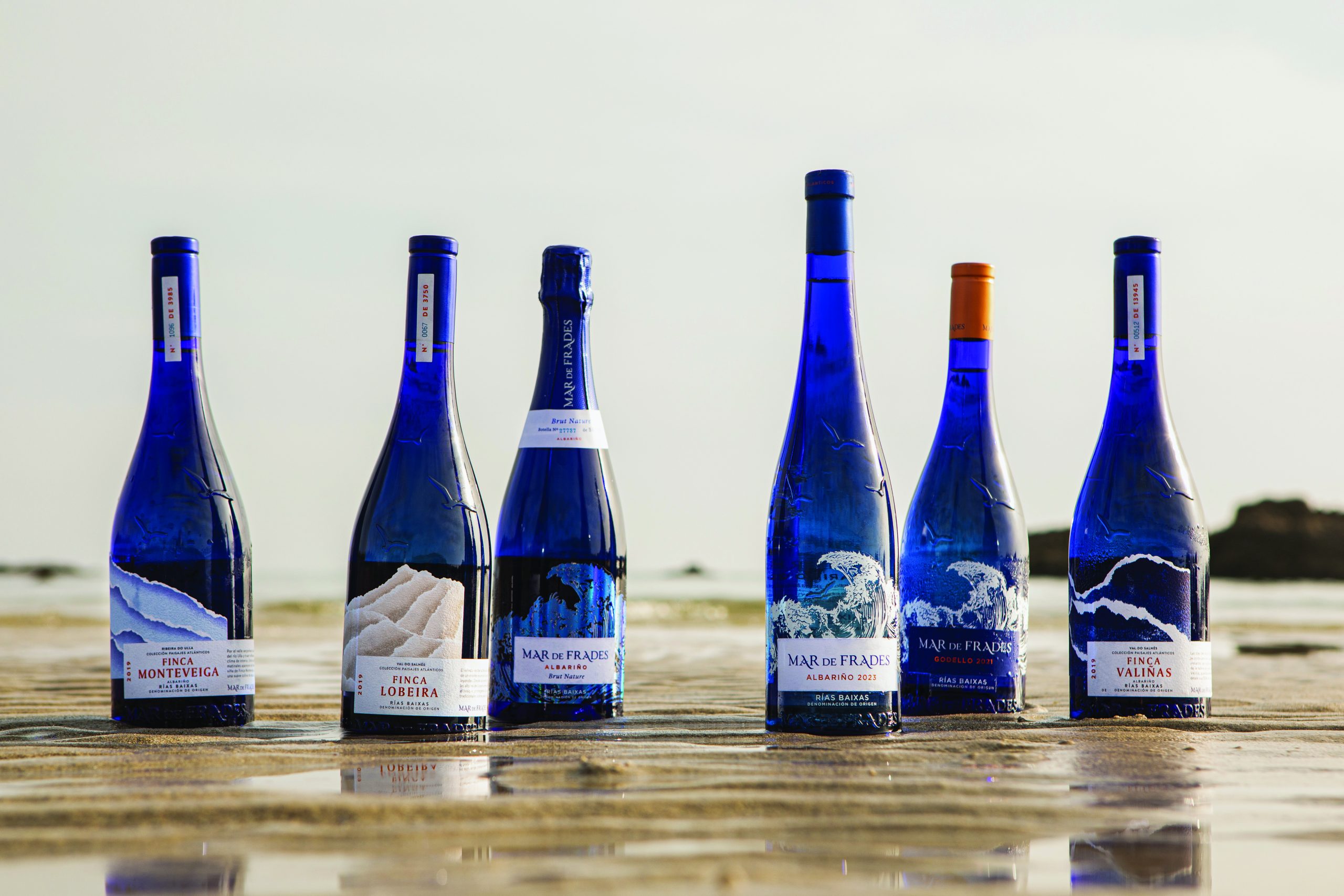‘Liberation Day’ or liquor lockdown? Trump’s tariffs rattle the wine & spirits world
As US President Donald Trump’s “Liberation Day” tariffs send shockwaves through the global drinks trade, db offers exclusive insight and analysis from across the wine and spirits industry.

The new tariffs, billed as a corrective to what Trump has called “unfair trade practices”, imposed a 20% duty on European Union wine and spirits and a 10% duty on United Kingdom exports, including Scotch whisky.
For a transatlantic drinks trade that has spent the last few years rebuilding itself after previous tariff battles, the announcement on Tuesday felt like a familiar hangover — only with higher stakes and fewer easy remedies.
French wines face a resurgent trade headwind
For France, the blow is acute. With around €2 billion of French wine exported to the US annually, the 20% tariff casts a long shadow over Bordeaux, Champagne and Burgundy.
Anne Cogny, export director of Bordeaux cooperative Tutiac, told db that while the situation is troubling, her outlook remains cautiously proactive: “In the US, it will definitely slow down the activity for the current listings, and at the same time,e it should generate new opportunities. We just hope it won’t get too much worse; 20% is still acceptable whereas 50, 100 and even 200 would be much more difficult to handle.”
Cogny added that Tutiac is now doubling down on alternative markets. “Our business is progressing a lot in Europe and Asia, so we are confident.” The team is also eyeing Canada and Latin America as potential growth regions.
However, she warned there is no room to absorb the new tax burden: “We won’t make any changes in terms of price as we are already at a low price in a very competitive market… importers, distributors and retailers will absorb most of it, alongside American customers who will have to pay more too.”
The bigger picture: a shrinking everyday presence for French wine
Beyond the spreadsheets, Cogny offered a stark assessment of French wine’s place in the American consumer psyche: “We have lost the supply for everyday consumption, and French wine is becoming increasingly part of the gourmet market, without being a luxury product… French wine isn’t seen as essential anymore and is becoming a small pleasure you can afford time to time.”
Despite this, she remains steadfast in one belief: “Bordeaux is well-known in the US market, and nothing can disturb this in the long term.”
She also issued a call for policy change within the EU itself: “The first support and action we need is to boost, promote and communicate inside our own market… but with our legal system, it’s currently not possible. So in this sense everything is in our own hands.”
Italy, Spain and the wider EU
Elsewhere in Europe, the message is the same. Italy’s wine federation warned that the 20% US duty could force many producers out of business, while Spain’s Rioja growers fear tariffs will worsen an existing wine glut. As the Spanish Wine Federation stated via Reuters: “No market could offset lost sales in the United States”.
Across the EU, wine producers fear not only lost revenue but a longer-term reconfiguration of consumer preferences — particularly if American drinkers begin to lean more heavily on domestic or alternative imports.
Scotch Whisky: history repeating, with a softer blow
The 10% tariff on UK goods is less severe than the EU’s 20%, but still a significant setback — particularly for Scotch whisky, which relies on the US as its largest market by value.
The Scotch Whisky Association expressed measured concern in a public statement, noting: “The industry is disappointed that Scotch whisky could be impacted by these tariffs. We welcome the intensive efforts by the UK government to reach a deal with the US administration, and we continue to support this measured and pragmatic approach towards a mutually beneficial resolution.”
The economic toll is not theoretical. As Ryan Fazackerley, director of sales at Whisky 1901, reminded db: “Between October 2019 and March 2021, UK whisky producers saw an alarming loss of £600 million ($732 million) in exports” due to earlier US tariffs. That episode is etched into the industry’s memory, and Fazackerley warned that today’s 10% levy could reignite uncertainty — not only for producers but for investors in rare and collectible casks.
“The whisky cask market… is vulnerable to these shifting trade dynamics,” he said. “Casks tied to distilleries most affected by tariffs… may experience fluctuations in demand. The price of rare casks and bottles could skyrocket as buyers look for tangible, high-value assets that can weather the storm of global trade uncertainties.”
Independent distillers at risk: the view from Kingsbarns
For small-scale producers, the threat cuts even deeper. William Wemyss, founder and chairman of Wemyss Family Spirits, which owns Kingsbarns Distillery and Darnley’s Gin, told db: “As a small, family-owned Scotch whisky business, we rely on stable, tariff-free trade to grow, invest and bring our products to whisky lovers across the Atlantic.”
Partner Content
“The reintroduction of a 10% tariff… is a damaging setback,” he said. “It injects real uncertainty, particularly for independent producers like us.”
Wemyss also flagged an unexpected knock-on effect — American tourism. “If tariffs fuel inflation or restrict consumer spending in the US, it risks fewer golf travellers, fewer distillery visits and a knock-on effect on local jobs.”
Calling for Scotch whisky’s unique identity to be respected in trade talks, he argued: “We believe there’s a strong case for treating Scotch differently in future trade discussions, in a way that recognises its heritage and longstanding appeal to US consumers.”
Diversification as defence

Louis Amoroso, CEO of US-based Full Glass Wine Co, confirmed to db that adaptation is the order of the day. “Currently, about 40% of our portfolio is imported wines, and these tariffs have led us to diversify further to balance our offerings.”
While avoiding immediate price hikes, Amoroso noted that the industry is being reshaped: “Over time, this could reshape the market as consumers shift toward other regions, potentially impacting the diversity of options available in the US market.”
He echoed calls for clarity and predictability: “The wine industry depends on stable, fair trade relations… what many businesses need right now is reduced uncertainty so they can plan accordingly.”
The English wine perspective: caution, not panic
From the English wine sector, a more muted reaction. Chris Unger, sales and marketing director at Hattingley Valley and director of WineGB, told db there was no significant impact on the business at this stage, though they “continue to monitor the situation.”
With stocks already in place and pricing unchanged, Unger said their broader concern lies with the global picture: “We are more concerned on the impact of an extended or escalating global trade war.”
His advice to government? “Conclude a balanced and fair trade deal with the US.”
Supply chains in the crosshairs: ACI Group calls for action
The ripple effects of tariffs go far beyond wine cellars and whisky warehouses. Karsten Smet, CEO of supply chain consultancy ACI Group, warned in a public statement: “Wait and see isn’t really an option anymore. The US is the fulcrum of global trade… and it has essentially turned millions of supply chain routes into toll roads.”
He continued: “This is a significant realignment of the global economy… the most damaging aspect of all this is the uncertainty. Trump has made it clear that these tariffs are subject to change… Contingency plans like new supply chain routes and using double or triple sourcing are no longer just nice-to-have — they’re essential.”
While Smet acknowledged the UK’s 10% tariff as relatively moderate, he likened it to “being slapped in the face rather than kicked in the nether regions.”
A fragile trade under threat
What began as a 20% levy on wine and a 10% slap on whisky has rapidly expanded into a far broader conversation — about supply chains, tourism, national identity and consumer behaviour.
From Bordeaux and Cognac to Fife and Sussex, producers are re-evaluating routes to market, pricing strategies and political expectations. There is no illusion: for many, the US remains a critical export destination, but no longer a predictable one.
Industry voices are united in urging diplomacy and de-escalation. As William Wemyss put it, “Our sector contributes not just economically, but culturally.” It is precisely this cultural fabric that may fray if trade routes remain ensnared in geopolitics.
For now, the wine and spirits world watches and waits. Whether the next vintage is one of recovery or retaliation will depend not just on negotiations but on resilience — and a readiness, as Karsten Smet suggests, to move “quickly and carefully” in a world where tariffs are as changeable as the weather in Burgundy.
Related news
Indian tariffs cause major barrier to entry for Australian wine producers
US spirits exports slump as tariffs and consumer shifts bite
Loss of US fine wine buyers following Trump tariffs akin to the 'exodus' of Asian buyers in 2010




